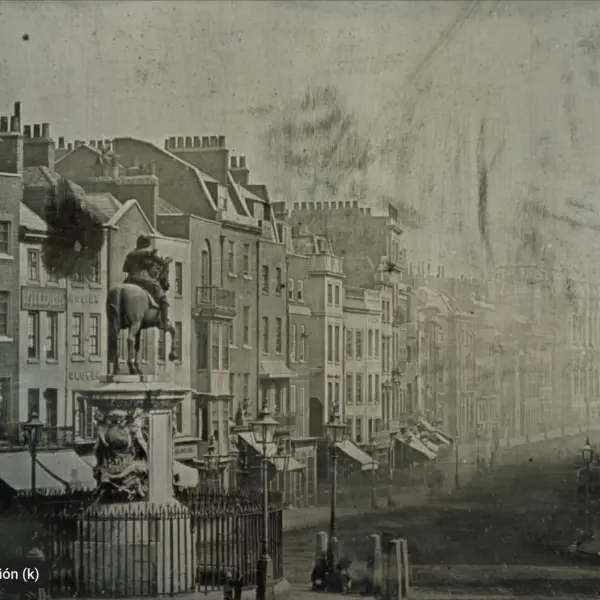King George V of the United Kingdom as a boy
King George V of the United Kingdom (1865–1936) was the king of the United Kingdom and the British Dominions, and Emperor of India, from 1910 until his death in 1936. He was a key figure during a period of significant change, both for Britain and the world, including the First World War, the dissolution of the British Empire, and the transformation of the monarchy itself.
Born on June 3, 1865, as the second son of the future King Edward VII and Queen Alexandra, George V was not initially expected to become king. His older brother, Prince Albert Victor, was the heir to the throne, but after his premature death in 1892, George V became the next in line.
He became king in 1910, following the death of his father, King Edward VII. His reign saw the challenges of the First World War, which began in 1914. During the war, George V's leadership was crucial in maintaining national morale. He was deeply involved in military affairs and worked to bolster the relationship between the monarchy and the British public. He and his family remained in London during air raids and other wartime dangers, symbolizing steadfastness and resilience.
One of the most significant events during his reign was the change in the royal family’s surname. In 1917, amid anti-German sentiment during World War I, George V renounced the German-sounding House of Saxe-Coburg and Gotha and adopted the name House of Windsor, a gesture that emphasized his connection to the British people. This decision was one of many symbolic acts of the monarchy's modernization.
The post-war period saw the reshaping of Europe, the collapse of empires, and the reorganization of British territories. Following the war, George V was also involved in addressing the challenges posed by the weakening of the British Empire and the changing political landscape in Europe. His reign also saw the decline of the British aristocracy's dominance and the beginning of political shifts toward greater democracy and social change.
In 1936, George V passed away at the age of 70, leaving his eldest son, Edward VIII, to inherit the throne. His reign is often viewed as a period of great transition, and his leadership during a time of political upheaval and global conflict has left a lasting mark on British history. His legacy also includes his role in helping establish the modern royal family as a more publicly visible and emotionally connected institution.
Born on June 3, 1865, as the second son of the future King Edward VII and Queen Alexandra, George V was not initially expected to become king. His older brother, Prince Albert Victor, was the heir to the throne, but after his premature death in 1892, George V became the next in line.
He became king in 1910, following the death of his father, King Edward VII. His reign saw the challenges of the First World War, which began in 1914. During the war, George V's leadership was crucial in maintaining national morale. He was deeply involved in military affairs and worked to bolster the relationship between the monarchy and the British public. He and his family remained in London during air raids and other wartime dangers, symbolizing steadfastness and resilience.
One of the most significant events during his reign was the change in the royal family’s surname. In 1917, amid anti-German sentiment during World War I, George V renounced the German-sounding House of Saxe-Coburg and Gotha and adopted the name House of Windsor, a gesture that emphasized his connection to the British people. This decision was one of many symbolic acts of the monarchy's modernization.
The post-war period saw the reshaping of Europe, the collapse of empires, and the reorganization of British territories. Following the war, George V was also involved in addressing the challenges posed by the weakening of the British Empire and the changing political landscape in Europe. His reign also saw the decline of the British aristocracy's dominance and the beginning of political shifts toward greater democracy and social change.
In 1936, George V passed away at the age of 70, leaving his eldest son, Edward VIII, to inherit the throne. His reign is often viewed as a period of great transition, and his leadership during a time of political upheaval and global conflict has left a lasting mark on British history. His legacy also includes his role in helping establish the modern royal family as a more publicly visible and emotionally connected institution.
Contributed by OldPik on January 7, 2024
Image

You must be logged in to comment on the photos.
Log in
Log in














No comment yet, be the first to comment...